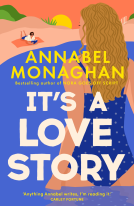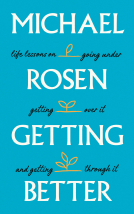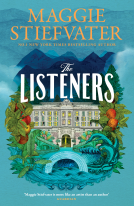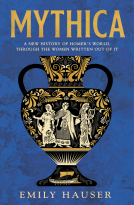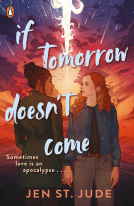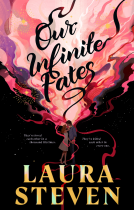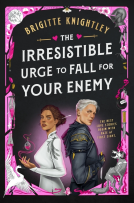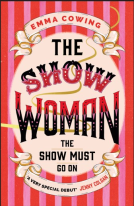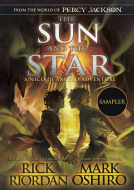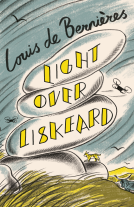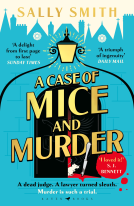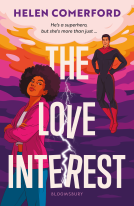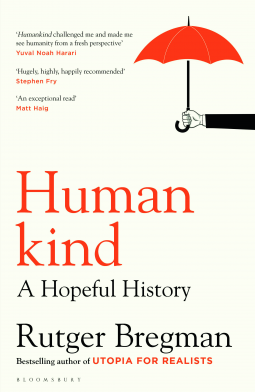
Humankind
A Hopeful History
by Rutger Bregman
This title was previously available on NetGalley and is now archived.
Send NetGalley books directly to your Kindle or Kindle app
1
To read on a Kindle or Kindle app, please add kindle@netgalley.com as an approved email address to receive files in your Amazon account. Click here for step-by-step instructions.
2
Also find your Kindle email address within your Amazon account, and enter it here.
Pub Date 19 May 2020 | Archive Date 17 Jun 2021
Talking about this book? Use #RutgerBregman #NetGalley. More hashtag tips!
Description
From the author of the global phenomenon Utopia for Realists comes ‘a declaration of faith in the innate goodness and natural decency of human beings’ (Stephen Fry), at a time when this message could not be more necessary.
'Humankind challenged me and made me see humanity from a fresh perspective' Yuval Noah Harari, author of Sapiens
It's a belief that unites the left and right, psychologists and philosophers, writers and historians. It drives the headlines that surround us and the laws that touch our lives. From Machiavelli to Hobbes, Freud to Dawkins, the roots of this belief have sunk deep into Western thought. Human beings, we're taught, are by nature selfish and governed by self-interest.
Humankind makes a new argument: that it is realistic, as well as revolutionary, to assume that people are good. The instinct to cooperate rather than compete, trust rather than distrust, has an evolutionary basis going right back to the beginning of Homo sapiens. By thinking the worst of others, we bring out the worst in our politics and economics too.
In this major book, international-bestselling author Rutger Bregman takes some of the world's most famous studies and events and reframes them, providing a new perspective on the last 200,000 years of human history. From the real-life Lord of the Flies to the cooperation seen in the aftermath of the Blitz, the hidden flaws in the Stanford Prison Experiment to the true story of the Kitty Genovese murder, Bregman shows how believing in human kindness and altruism can be a new way to think - and act as the foundation for achieving true change in our society.
It is time for a new view of human nature.
'The topic is vital, the sweep immense, and the storytelling is spellbinding. This is a fabulous book'
Tim Harford, author of The Undercover Economist
‘Bregman’s understanding of history leads to a new view of human nature. Humankind changes the conversation and lights the path to a brighter future’ Susan Cain, author of Quiet
'Make a note of Humankind. It's an exceptional read' Matt Haig
Advance Praise
‘Never dewy-eyed, wistful or naive, Rutger Bregman makes a wholly robust and convincing case for believing - despite so much apparent evidence to the contrary - that we are not the savage, irredeemably greedy, violent and rapacious species we can be led into thinking ourselves to be. Hugely, highly and happily recommended'
Stephen Fry
‘Rutger Bregman’s extraordinary new book is a revelation … Humankind is masterful in its grasp of history, both ancient and modern … We need it now more than ever’
Susan Cain, author of Quiet
'Cynicism is a theory of everything, but, as Rutger Bregman brilliantly shows, an elective one. This necessary book widens the aperture of possibility for a better future, and radically'
David Wallace-Wells, author of The Uninhabitable Earth'
This is a wonderful and uplifting book. I not only want all my friends and relations to read it, but everyone else as well. It is an essential part of the campaign for a better world’
Richard Wilkinson, author of The Spirit Level
‘Bregman is out on his own, thinking for himself, using history to give the rest of us a chance to build a much better future than we can presently imagine’
Timothy Snyder, Holocaust historian and author of On Tyranny
'A devastating demolition of the misanthrope’s mantra. A beacon of hope for a frighted world'
Professor Danny Dorling, author of Inequality and the 1%
'Humankind provides the philosophical and historical backbone to give us the confidence to collaborate, be kind and trust each other to create a better society' Mariana Mazzucato, Professor in Economics at UCL and author of The Value of Everything
‘A fantastic read … Good fun, fresh and a page-turner’ James Rebanks, author of The Shepherd’s Life
'This book must be read by as many people as possible – only when people change their view of human nature will they begin to believe in the possibility of building a better world’
Grace Blakeley
'Every revolution in human affairs - and we're in one right now - comes in tandem with a new understanding of what we mean by the word "human". Rutger Bregman has succeeded in reawakening that conversation by articulating a kinder view of humanity (with better science behind it). This book gives us some real hope for the future'
Brian Eno
Available Editions
| EDITION | Hardcover |
| ISBN | 9781408898932 |
| PRICE | £20.00 (GBP) |
Featured Reviews
 Librarian 431790
Librarian 431790
It was a fascinating, complex and thought provoking book but not an easy one as it's packed of information and food for thought.
I liked the basic theory, all men are good, and I liked how the author use historical examples to support his theory.
It's not the kind of book you read when you want something light and entertaining.
I strongly recommend it.
Many thanks to the publisher and Netgalley for this ARC, all opinions are mine.
Humankind by Rutger Bregman
Humankind is an intensely readable, uplifting and educational book.
Bregman sets out to show that humans are intrinsically good and want the best for each other.
He spends a good proportion of the book refuting negative portrayals of human nature. He picks apart Lord of the Flies, the Stanford prison experiment, the history of Easter Island, bystander apathy as well as other misrepresented or misconstrued events.
It would seem that the mainstream media has a lot to answer for in creating a negative view of humanity. Sensationalism being a major selling point. “The news, according to dozens of studies is a mental health hazard.” It’s also a hazard to democracy (at least in the UK) but I’ll leave that point for now.
Bregman states that “It’s when crisis hits...that we humans become our best selves.” This is definitely true in the age of Corona. Communities have rallied together to support the vulnerable. Our local boat community has set up networks of support that will continue long after the virus runs its course.
As a former teacher I could see children thrive when they were encouraged and praised. Assume the best in people and you will meet their best. Bregman argues that this kind of thinking has the power to reform our schools, prisons, businesses and democracies.
This is what I was hoping for from this book. Unfortunately there’s a long way to go before Bregman has a fully fledged theory of his own. His ten rules to live by are a great start. We all need kindness, compassion and understanding for one another.
Hope, for me, is a radical act. “For the powerful, a hopeful view of human nature is downright threatening. Subversive. Seditious. It implies that we ’re not selfish beasts that need to be reined in, restrained and regulated. It implies that we need a different kind of leadership.”
Hope gives us the power to change ourselves and our societies. This book really made me think and question. It took a long time to read but I think it will stay with me for a long time. I recommend it as an antidote to mainstream media!
Thanks to @netgalley and @bloomsburypublishing for my eARC.
#netgalley #rutgerbregman
 Sara B, Reviewer
Sara B, Reviewer
You know when sometimes books just appear in your life when you most need them? I was feeling a bit disillusioned with humankind recently. With the initial panic of the coronavirus, all I saw on twitter, were news how people were stockpiling without a second thought of what that would mean for everybody else, Americans queuing up outside gun shops to bulk-buy ammunition and guns in case the shops would run out of food and Trump trying to buy the vaccine ‘but only for Americans’. The evidence kept mounting up, and all I could think was ‘Wow, we really are a selfish bunch’. And then Bregman came and proved me wrong.
‘Humankind’ is packed with stories and interpretations and study findings which you most likely haven’t heard before. There were moments were I sat shocked as even some of the fundamental things I’d learned in my psychology and sociology classes, recently have been proven to have not been true, and well I failed to hear about them. At others times, I sat smiling, feeling a tinge of warmth as chapter after chapter I was shown the goodness that ‘homo puppy’ (as Bregman came to call our species) was capable of showing.
Bregman looked at Hobbes’ and Rousseu’s views of civilisation, bystander effect, bullying, non-complementary behaviour, prison structure, participatory democracy, employees directing their own teams, kids’ playgrounds among many other fascinating stuff. There’s an overload of information in this book, but the clear and concise language and structure will make it easy to read and absorb. It’s easier if you start at the beginning and read from beginning to end, but it will also work if you pick and choose random chapters as any previous information needed for context, will be shown by the inclusion of the correct chapter number to which you can term if needed. Bregman does not come across as patronising and overbearing, but as a likeable narrator, or that cool teacher who would sometimes share jokes and anecdotes whilst still managing to deliver the context of the lesson, and keep everybody interested.
Overall, I really loved this book, and there’s no question about it when I say that I will be returning to it several more times. I might have started the book as a cynic, but as I turned the last page I no longer felt like one; I learned the majority of us are actually decent despite what the newspapers will have you believe. I urge all of you to give this one a try; we all need a more positive outlook of the world and ‘Humankind’ might just be the easiest way to start.
 Ciaran S, Reviewer
Ciaran S, Reviewer
Fascinating and, on the whole, wonderfully easy to read exploration of some of the weighty moral and philosophical issues - are we essentially a good species or is civilisation only a veneer waiting to crack? I’d argue recent events are demonstrating much more the former, given the increased community support we’ve seen during Covid, and to a confirmed chic like myself that’s been a lovely surprise.... Bregman illustrates his arguments with a mixture of the familiar, the unfamiliar, and the familiar retold to demonstrate much of what we may think we know is a lie or at best a distortion (the Stanford prison experiment being a key example for me). The language is relatively simplistic (i.e. not weighted down with academic terms for the sake of it), but the discussion is complex - a task which so many writers fail! Bregman is persuasive, and although i don’t buy everything the narrative journey is compelling and i’m convinced by more than i expected. Good popular science, told well and leaving plenty to chew on.
Rutger Bregman returns with one of the most anticipated nonfiction titles of the year. What makes this such a fantastic read is that it is equal parts fascinating and informative; many such books can be dry and tedious but Humankind avoids those pitfalls by employing a highly readable writing style to entice you to carry on turning the pages well into the night. At its heart, this is a book about human nature and on the whole is optimistic about life. I found it different from what I would usually read as I am quite the cynic and it has taught me interesting anecdotal tidbits I will remember. Highly recommended. Many thanks to Bloomsbury Publishing for an ARC.
A profound call for hope, Humankind is the correction to our innately negative view of humanity. Comprehensively addressing the traditional arguments against goodwill towards others, and offering thoughtful actions to take away, this book will surely stand as one of the most important of this period.
I don't often read this kind of non-fiction (I'm not a huge fan of the conversational, bloggy style), but I really enjoyed Humankind. Kindness is a fascinating topic, and and I found this exploration genuinely compelling.
I think what works best about Humankind is its structure. It's perfectly paced and logically moves from theory to theory. Bregman doesn't just present key philosophical concepts, but pulls them apart and breaks them down into comprehensible pieces - without the use of jargon. Humankind covers a lot of ground, but it does so in such a measured way that I never felt lost or overwhelmed by information. There are a few too many black-and-white comparisons (theories that were presented just to be neatly overturned), but this is a topic which has attracted a lot of contradictory ideas, so perhaps that shouldn't be surprising.
Humankind is a refreshing, intelligent and thought-provoking read.
An in depth look at humanity that informs us that we are not so bad after all. Some sensitive subjects such as Brexit and the war are covered but Bregman writes in such a way that you can't help but enjoy this informative book. A great book especially during lockdown when we need to appreciate what we have.
 Cecilia W, Reviewer
Cecilia W, Reviewer
Rutger Bregman has opened my mind to so many thoughts with this book. His premise is that we, us, humankind, are actually much nicer than we think we are. He cites early on the William Golding story of Lord of the Flies where a group of shipwrecked boys end up turning into savages and even killers before they are rescued. But Bregman suggests that this isn’t a true representation of us at all. Rather he tells us of a true life boys shipwrecked story where they created a beneficial community - growing vegetables together, supporting each other. They, contrary to Golding’s savages organised a system of when tempers frayed they had a place on the island where they could go to cool off and calm down, like a naughty step but for temper trantrums. I don’t agree with everything he says. He does say a couple of times that he wonders if his quest to see the good in things blinds him to reality and perhaps his maybe-naivety is a good thing. I found it fantastically interesting to think about and therefore question. It’s well written and thought provoking and I hope everyone, everywhere reads it - having mentioned it to just three people they have all bought it immediately and we’re discussing it and will do for a long time to come.
2020 for many has been a difficult year for many. In Britain, we've had to contend with Brexit, storms, the threat of war and now corornavirus. In the face of all this adversity, it's times like this that we need a little hope.
Fortunately, Humankind, the latest book by popular historian Rutger Bregman, has appeared on the horizon to offer an optimistic look at humanity in essence. Bregman attempts to answer looming questions on the nature of people both individually and as a whole. Are humans essentually good or bad? Do we function solely for ourselves or for the good of the people around us?
Humankind is an effective rebuttal to the cynical and pessimistic perspectives on human nature presented by many sociologists, psychologists and historians across the ages. In particular, Bregman addresses the conflicting views of two behemoths of enlightenment philosophy, Hobbes and Rousseau.
In this period of uncertainty and reflection, Bregman's book was a true tonic. His passion for his subject was tangible throughout his writing and his optimism was inspiring. Thoughts, opinions and facts were carefully researched and deftly argued, although occasionally obscure anecdotes seemed to do some heavy lifting when it came to defending certain points.
Humankind is an easy read which shares many complex concepts in a way that is both accessible and enjoyable. I rarely felt that the book was preaching, and for the most part is read almost as a conversation with a friend (albeit one who is highly researched and deeply perceptive).
I didn't agree with all of the ideas presented in the course of the book, some of which I felt were oversimplified or selective with their evidence. I also felt that the true premise of this research was not 'are humans inherently good?' but rather 'is civilization inherently bad?' Bregman seems to know with some certainty what humans and society were like between 50,000 and 10,000 years ago, the concept that palaeolithic people were entirely peaceful and egalitarian being a keystone in his arguments. Even if this were true (as it is, it's not something that could ever be proven one way or the other), I couldn't shake my perhaps cynical view that this is not now the world in which we find ourselves. Wars, violence and inequality have pervaded all of recorded human history, and I don't feel like the reasoning Bregman offered for this satisfied my skepticism.
While I may not be fully converted to the author's optimictis viewpoint, I truly appreciated this book for opening up an interesting and thought-provoking dialogue and for providing insight into some of the most (in)famous psychological and philosophical experiments of the 20th century. The final chapters on how to apply new research to the redevelopment and/or complete restructuring of schools, businesses, politics and prison systems were compelling reading. I found myself reflecting consistently on the ideas and histories presented, and the sharing of some of Bregman's beliefs has incited some serious and interesting debate in my own household.
If some books overgeneralise humanity's indiscretions and ills, then why not one which does the same with the opposing perspective. To look at history's moments of shame or violence through a lens of understanding and compassion is a powerful skill - sometimes uncomfortable but in many ways pivotal to real social change. Bregman's ten steps to readdressing and refocusing perspectives onto the positive aspects of human nature are an important take away, and this book will continue to have me thinking for a long time to come.
Thanks to Bloomsbury and NetGalley for kindly giving me an advanced copy of this book in exchange for an honest review. All opinions are my own.
 Pam S, Reviewer
Pam S, Reviewer
This book is very much required these days. It's an optimistic look at humanity and human features as opposed to the negative ones.
It's very readable, very approachable with engaging writing. It'll make you feel better for sure.
Thanks a lot to NG and the publisher for this copy.
Rutger Bregman sets out to debunk the ‘veneer theory’, the idea that humans have a thin facade of civilisation that easily cracks under pressure to reveal the evil creature within all of us, as depicted in William Golding’s classic novel, The Lord of the Flies.
Some of the examples Bregman investigates are fascinating, from the Christmas truce in the trenches of World War I, to the history of Easter Island, to the psychological thought experiments that supposedly proved how evil we are: the Stanford Prison Experiment and the Milgram Shock Machine experiment.
This is not a blindly, naively optimistic book. Bregman addresses the evils that humans do perpetrate, but he is also clear on the role that newspapers and social media play in creating clickbait content that incites fear and prejudice and doesn’t in fact accurately reflect how most of us live. Humankind is, however, a book with a purpose—to raise our expectations of humanity and to inspire us to hope that we can create a better society. It is a thoroughly inspiring book as well as being very readable and engaging.
 Pam C, Reviewer
Pam C, Reviewer
This is an interesting take on some of those famous experiments (e.g. Stamford Prison experiment) or new stories, including additional information or new experiments. It was a bit of a slog at times but it's written so that's accessible to the masses. I wouldn't re-read it but it was interesting. It is already out of date though - talks about how the human race hasn't had to deal with a massive viral outbreak in almost a century, for example. That's a shame as it automatically made me wonder what else has changed since he wrote it. Probably not a lot to be fair. I'd be interested to read an new chapter once COVID-19 has run its course evaluating the human response to it.
Readers who liked this book also liked:
Rick Riordan; Mark Oshiro
Children's Fiction, LGBTQIA, Teens & YA
